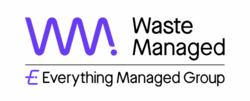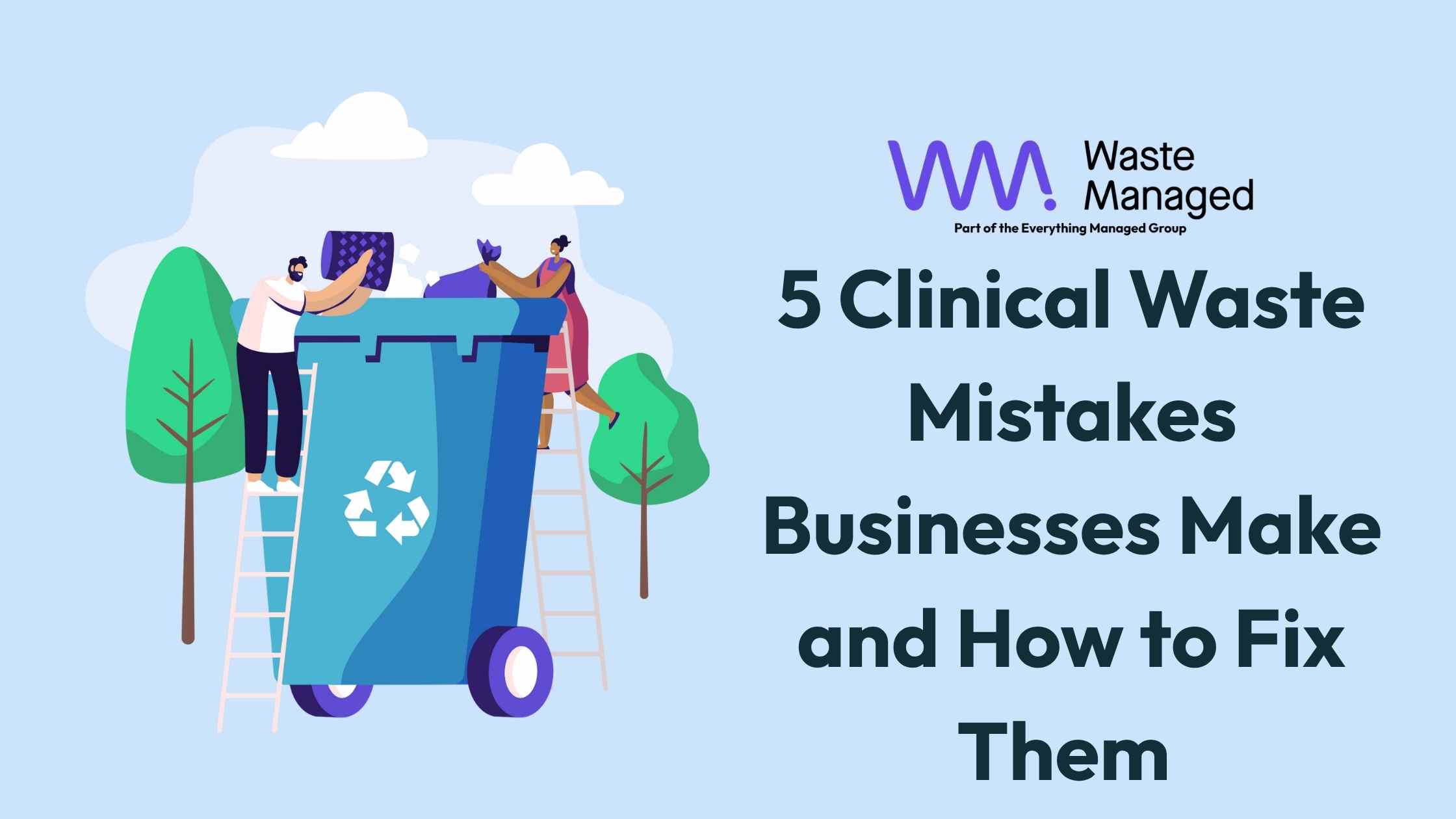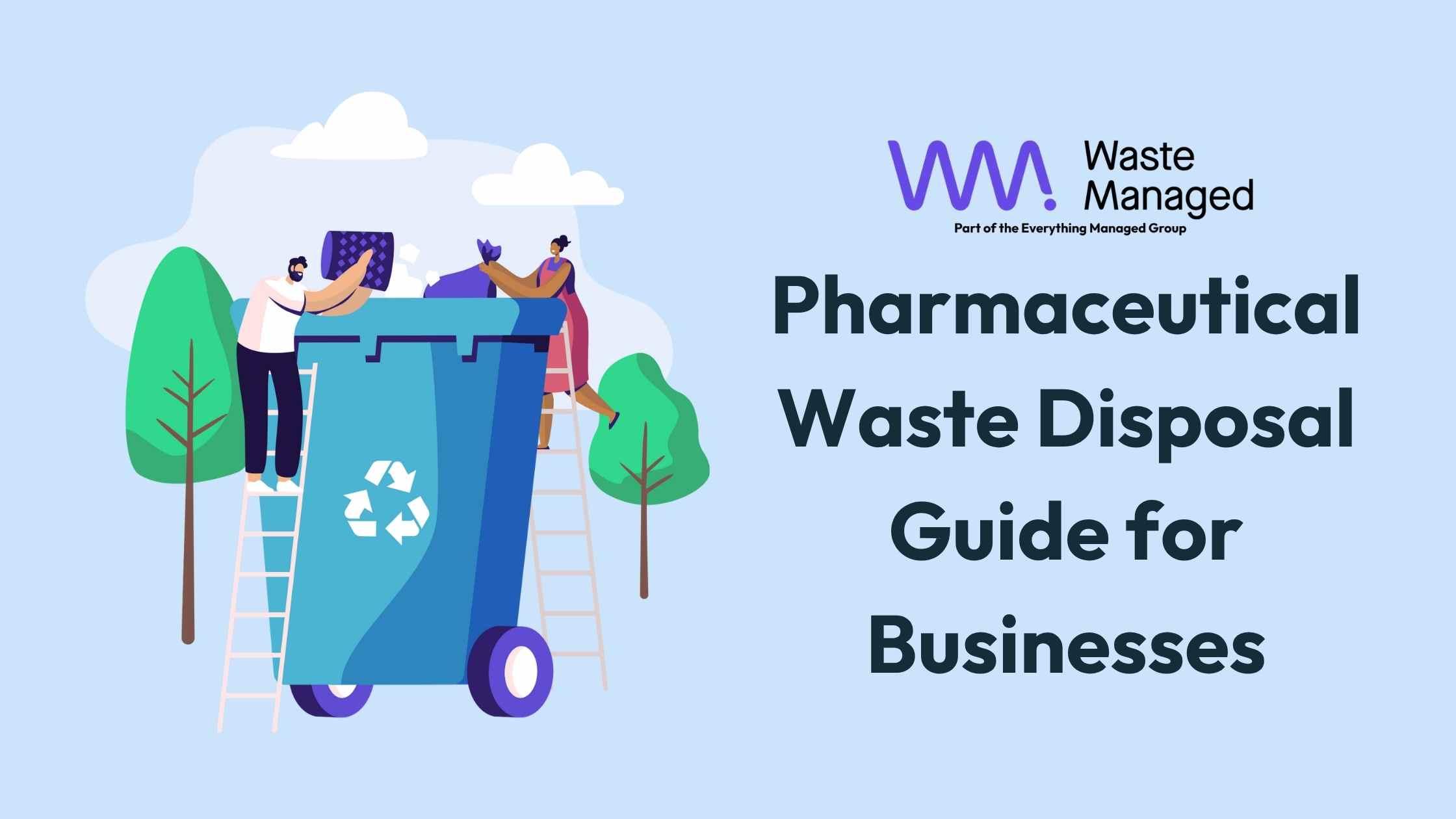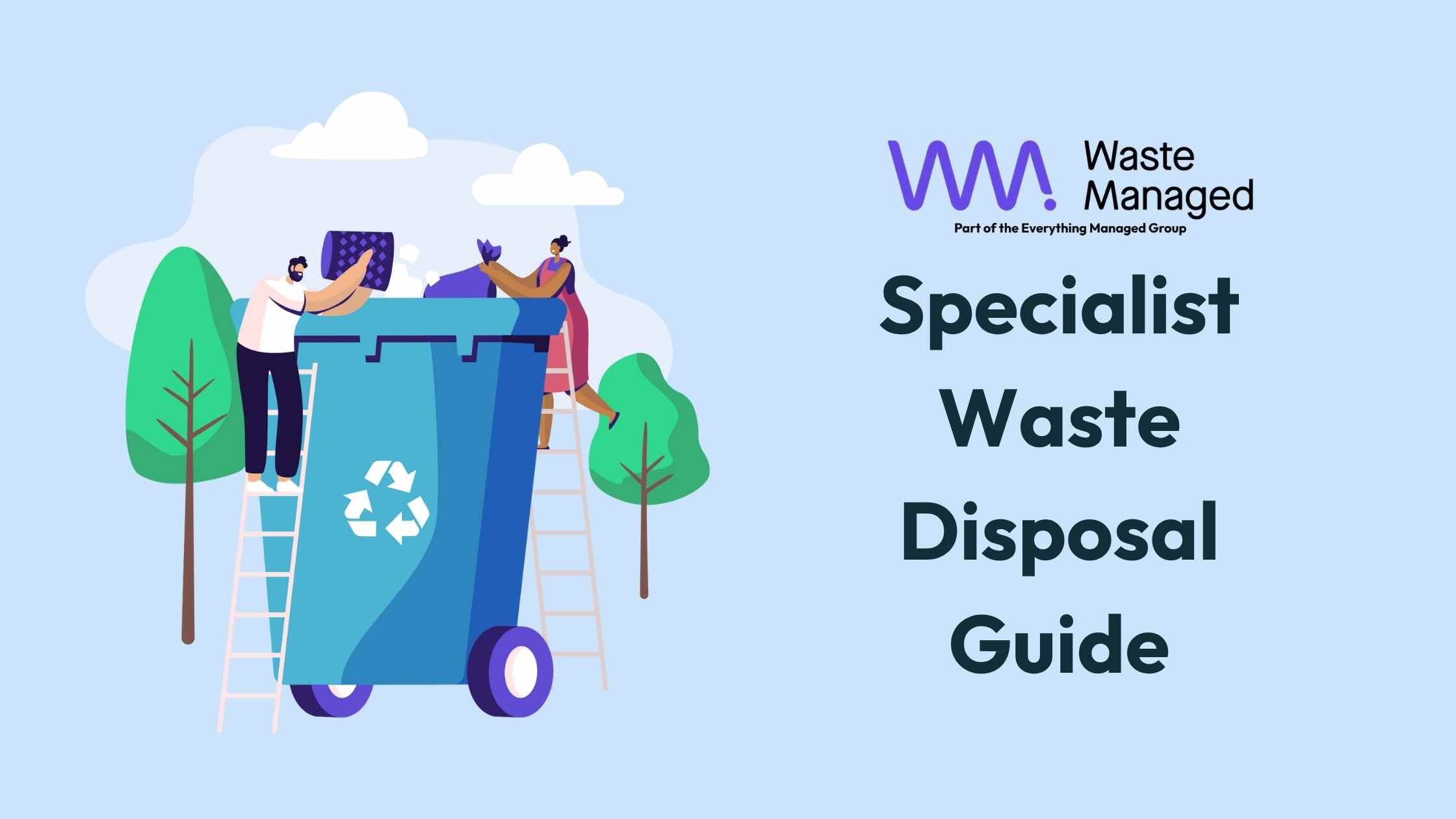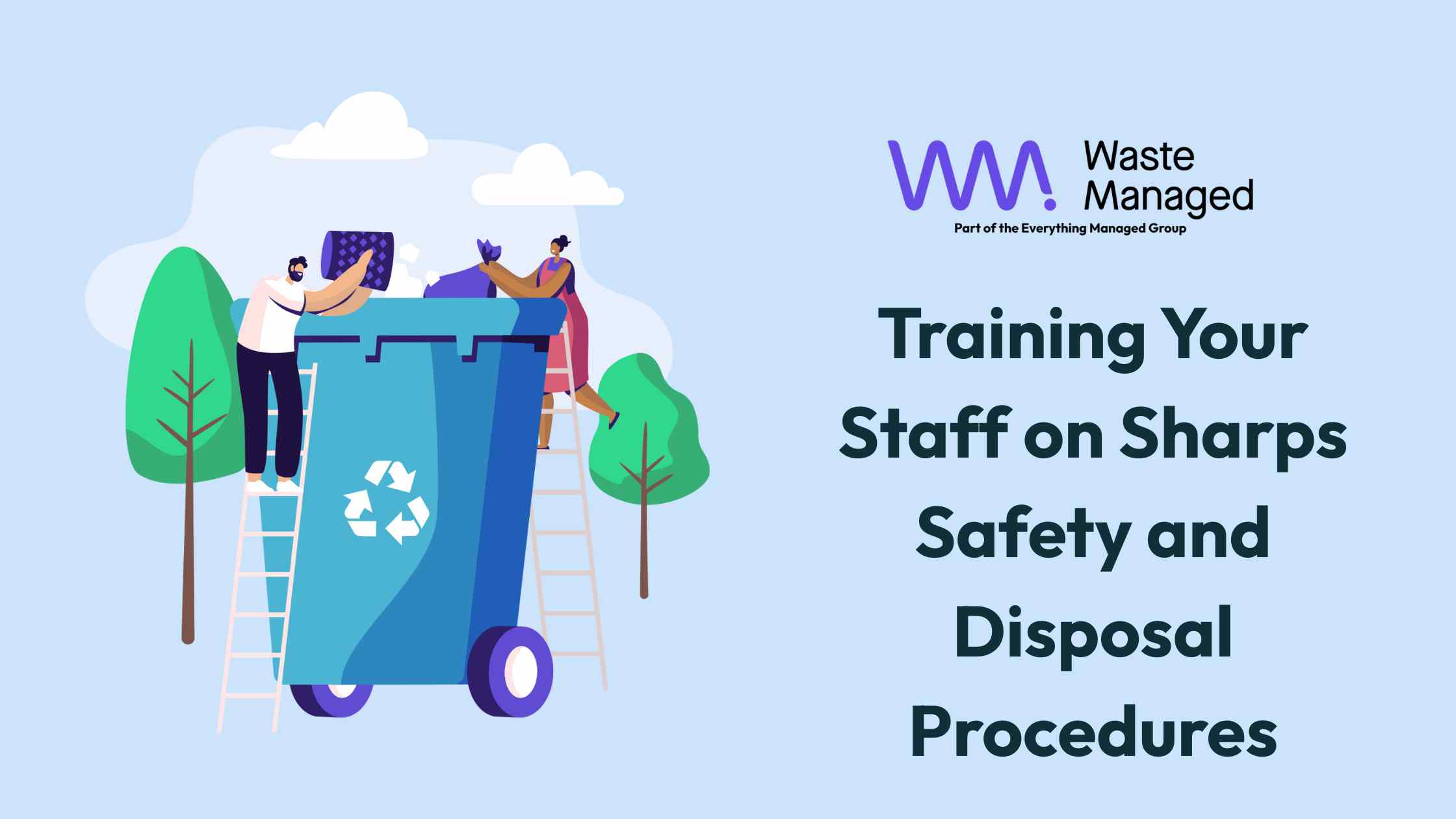
Quick Summary:
- Train staff to handle sharps safely using personal protective equipment (PPE) and proper techniques, and ensure they use designated sharps containers to prevent injuries and maintain safety.
- Educate staff on responding to sharps-related incidents, including immediate first aid and reporting procedures, while ensuring compliance with relevant health and safety regulations.
Handling Sharps waste – like needles, blades, and broken glass – can be risky and is a significant component of clinical waste management. Sharps can be potentially hazardous materials that require careful disposal to prevent serious health issues.
Injuries caused by Sharps can lead to serious health issues, including infections and exposure to harmful pathogens, so it’s crucial to get this right.
Table of Contents
What Your Staff Needs to Know

Understanding the Risks
- What Could Go Wrong: It’s important for staff to recognise the dangers of sharps. Accidental cuts or punctures can lead to infections or serious diseases. Knowing these risks helps everyone stay vigilant.
- Health Impact: Emphasise the potential health consequences of mishandling sharps, such as Hepatitis B, Hepatitis C, and HIV. This knowledge underscores the importance of proper procedures.
Safe Handling Techniques
- Wear the Right Gear: Ensure everyone understands the importance of wearing gloves and safety glasses when handling sharps. This simple step can make a big difference in preventing injuries.
- Handling Do’s and Don’ts: Teach staff how to handle sharps correctly—never bend, break, or recap needles. Use tools like tongs for picking up sharps to keep hands safe.
Proper Disposal Procedures
- Using the Right Containers: Make sure staff know how to use sharps disposal containers correctly. These containers should be puncture-resistant and marked.
- Disposal Tips: Show your team how to dispose of sharps properly. Containers shouldn’t be overfilled, and staff should avoid trying to remove items from them.
What to Do in an Emergency
- Injury Response: Provide clear steps for what to do if a sharps injury occurs, including first aid procedures and when to seek medical help.
- Reporting Incidents: Stress the importance of reporting any injuries or incidents and following your facility’s protocol for documentation.
Following the Rules
- Know the Regulations: Make sure your team is aware of relevant safety regulations and standards. This includes guidelines from OSHA or local health authorities.
- Facility Policies: Review your facility’s specific sharps safety policies and procedures to ensure everyone is on the same page.
Ongoing Training
- Keep it Fresh: Schedule regular refresher courses to keep safety practices top of mind. Regular training helps reinforce the importance of proper sharps handling and disposal.
Creating a Safe Environment

To ensure that sharps safety and disposal procedures are not just a checklist but a fundamental part of your workplace culture, follow these steps to embed safety practices into daily routines and encourage a proactive approach to managing sharps:
Design a Tailored Safety Plan
- Customised Protocols: Develop safety protocols that fit the unique needs of your workplace. Consider factors like the types of sharps used and the specific risks involved in your operations.
- Accessible Documentation: Ensure that these protocols are not only written clearly but also accessible to all staff, possibly through digital platforms or safety handbooks.
Cultivate a Proactive Safety Culture
- Engagement Strategies: Actively involve employees in safety discussions and decision-making. Their direct experiences can provide practical insights and foster a sense of ownership over safety practices.
- Open Dialogue: Create an environment where employees are encouraged to report potential hazards or unsafe practices without fear of retribution. This openness helps prevent issues before they escalate.
Implement Structured Safety Audits
- Scheduled Reviews: Plan and execute scheduled safety audits to evaluate the effectiveness of your sharps disposal practices. Use these reviews to identify any gaps or areas for improvement.
- Feedback Mechanisms: Implement mechanisms for staff to provide feedback during these audits, allowing for continuous improvement and adaptation of procedures.
Enhance Training with Real-Life Application
- Practical Workshops: Conduct workshops where employees can practice handling sharps and using disposal containers in simulated scenarios. This hands-on approach helps reinforce theoretical knowledge.
- Scenario-Based Drills: Incorporate drills that mimic real-life emergencies involving sharps, helping staff prepare for unexpected situations and reinforce their training.
Maintain and Update Safety Equipment
- Regular Maintenance: Ensure that all sharps disposal containers and safety equipment are regularly inspected and maintained. This helps avoid equipment failures that could compromise safety.
- Up-to-date supplies: Keep track of the condition of safety supplies and replace them as needed to ensure they remain effective.
Promote and Celebrate Safety Initiatives
- Recognise Efforts: Highlight and reward individuals or teams who excel in adhering to safety protocols. Recognition can motivate others and reinforce the importance of following safety practices.
- Share Best Practices: Use internal newsletters or meetings to share successful safety practices and improvements. Celebrating these successes helps keep safety at the forefront of everyone’s mind.
Conclusion
Training your staff on sharps safety is crucial for creating a safe work environment. By ensuring they know how to handle sharps safely, dispose of them correctly, and respond to emergencies, you can prevent injuries and maintain a safer workplace.
Regular training and adherence to safety practices will help keep everyone protected and compliant with regulations.
